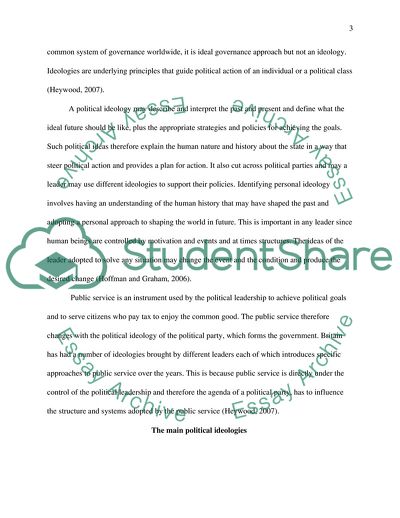Cite this document
(Political Ideas and Change in Britain Affecting Public Service Essay Example | Topics and Well Written Essays - 3000 words, n.d.)
Political Ideas and Change in Britain Affecting Public Service Essay Example | Topics and Well Written Essays - 3000 words. https://studentshare.org/politics/1762746-outline-and-evaluate-the-way-in-which-political-ideas-and-political-change-in-britain-have-affected-the-nature-of-public-services
Political Ideas and Change in Britain Affecting Public Service Essay Example | Topics and Well Written Essays - 3000 words. https://studentshare.org/politics/1762746-outline-and-evaluate-the-way-in-which-political-ideas-and-political-change-in-britain-have-affected-the-nature-of-public-services
(Political Ideas and Change in Britain Affecting Public Service Essay Example | Topics and Well Written Essays - 3000 Words)
Political Ideas and Change in Britain Affecting Public Service Essay Example | Topics and Well Written Essays - 3000 Words. https://studentshare.org/politics/1762746-outline-and-evaluate-the-way-in-which-political-ideas-and-political-change-in-britain-have-affected-the-nature-of-public-services.
Political Ideas and Change in Britain Affecting Public Service Essay Example | Topics and Well Written Essays - 3000 Words. https://studentshare.org/politics/1762746-outline-and-evaluate-the-way-in-which-political-ideas-and-political-change-in-britain-have-affected-the-nature-of-public-services.
“Political Ideas and Change in Britain Affecting Public Service Essay Example | Topics and Well Written Essays - 3000 Words”. https://studentshare.org/politics/1762746-outline-and-evaluate-the-way-in-which-political-ideas-and-political-change-in-britain-have-affected-the-nature-of-public-services.


